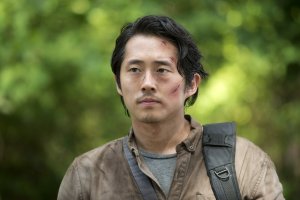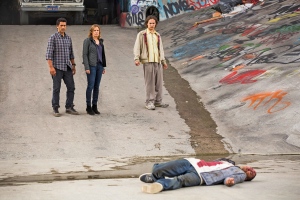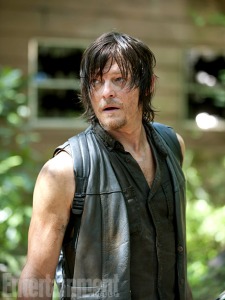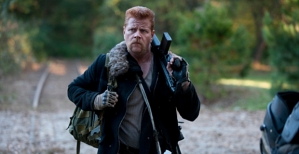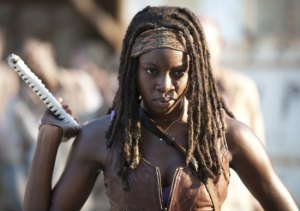Everyone loves a flesh-eating zombie, don’t they? The gnarling sounds of their groaning. Their drunk walk. Their lack of brain cells, the list goes on and on of all the fascinating attributes the living dead host that keep zombie television, cinema and video-games a’coming. As a lover of the zombie genre (about the only partner of horror I can enjoyably watch), I have compiled a short list of the best films about, or involving these creatures that people just love to go crazy about. From Paul W.S. Anderson’s conventional take on Resident Evil to Danny Boyle’s off-the-scale originality of 28 Days Later, this is the ultimate collection of zombie cinema you just have to get your teeth stuck in to (see what I did there?).
Many believe that Romero was the first to introduce the zombie genre to us, however it was 1932 when the first glimmer of this now oh-so-popular sub-genre of cinema was first presented to audiences with Victor Halperin’s White Zombie. Having said that, zombie horror wouldn’t be anything without George A. Romero, and his first offering of zombies in the traditional sense we all now know them. Romero created the mannerisms, the sounds and the aesthetic of the contemporary zombie (they really haven’t differed in look much at all), and we, as an audience, have been spoiled for choice since the 60’s with zombie offerings.
Fun fact: Night of the Living Dead, now a classic to critics and audiences’ alike, was originally panned by viewers for being intensely violent. Romero also used the zombies as a social commentary for a 1960’s consumerist America, and this didn’t go down too well either.
Night of the Living Dead is of course a must-watch. Originally released in 1968, Romero’s fresh take on the living dead set the mark for the rest to come. Everything about the production screamed rebellion, from its filming outside of the studio system, Romero’s deliberate choice to film in black and white (despite color being available at this time), and his abundance for gross-out violence. Night of the Living Dead inspired a generation of film-makers to pick up their cameras and have a go at producing their own versions of a film that would forever be a classic amongst cinema-goers and critics. Heralded in the list of Movies that Matter, if you watch any film mentioned in this article, it should probably be this one. Dawn of the Dead came a decade later, and is the production that is most often mentioned for the formula in which it set; the locale of the mall, the importance of the survival horror element and the wonderful 70’s look and feel the film encompasses. Both helped cement Romero as the Godfather of classic zombie horror.
Staying on the same track with an adaptation, another must-see is Zak Snyder’s ironical take on Romero’s masterpiece; his 2004 Dawn of the Dead. What’s interesting about Snyder’s look at a zombie-filled America is the way he so cleverly manages to make a comment on all of the political, and societal issues he believes to be of importance in the US, in this funny, scary and intelligent horror. Immigration, race, gun-crime, consumerism and much more are all on display, and in quite a refreshing and often humorous way. For me, Michael Kelly is the shining star as C.J., a mall guard with a chip on his shoulder (he’s scared, right? But just doesn’t want to admit it). Its fun to watch characters like C.J., Kenneth (the loveable, and total hard-ass that is Ving Rhames), Ana (Sarah Polley) and Andre (Mekhi Phifer) as they get to know one another (these are people that would of been unlikely to jell before this mess); Phifer a criminal, Rhames a cop and Polley a middle-class nurse. Watching this group survive in the safe vicinity of the mall, and then fight in the horror that lay outside makes for an interesting ride, one which progresses at a swift pace with a stellar soundtrack and witty script. Snyder’s Dawn of the Dead is an exemplary production of classic meets contemporary, and in the best way.
Fun fact: Although he wasn’t expecting it, Romero was pleasantly surprised with Snyder’s take on the directors classic, and really rather enjoyed it. Kudos Zak.
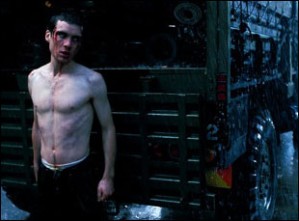
cillian murphy as jim in 28 days later
A change in direction was needed in the zombie film realm, with too much of the same old hat, and not nearly hardly enough production values to make it worth your while. Danny Boyle was at hand in late 2002 to bring us that change, in the form of a dilapidated London, full of enraged humans (important to note) who are out for blood, and destruction. 28 Days Later is the film at hand, a film that challenges the genre in a way no zombie film had before and a film that focuses on character development and human relationships, not just the grotesque nature of the violence this genre has become so known for. Cillian Murphy is at the center of this unique pick as Jim, a bicycle courier who wakes up from a coma to discover what first seems a deserted London. As night falls the truth becomes apparently, and unnervingly clear; there is no desertion, just blood-thirsty ‘rage’ victims. Murphy shines as a terrified man still hopeful that the world can be salvaged, its this hope that gives the film its realism, who would want to believe this could be it? No one, and Jim is 28 Days Later‘s everyman, struggling to come to terms with the devastation that took place whilst he was asleep. With support from Brendan Gleeson, Christopher Eccleston and Naomie Harris and a fascinating aesthetic used to distinguish Britain as an unrecognizable landscape, Boyle gives us an outstanding zombie film which refuses to follow the formulaic rules of its predecessors. Brilliantly British, and startlingly real. Oh, and if John Murphy’s ‘In the House, in a Heartbeat‘ doesn’t give you chills, nothing will.
Fun fact: To capture famous London landmarks in a state of desertion Boyle closed sections of road off for minutes at a time in the early hours of the morning as to not cause disruption, using a DV camera to create the stark effect he wanted.
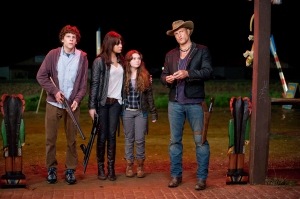
the cast of zombieland
Now for something a little more upbeat, and just damn fun; Zombieland. This is a film that everyone can enjoy because of its laugh-out-loud humor and its ability to not take itself seriously, Zombieland is a zombie movie that appeals to the masses (even my mum likes it, and she hates violence and horror films, must be good right?). Comedy and the living dead wouldn’t be something that sounds like it would go together, and before Zombieland Shaun of the Dead was the go-to film for most who wanted a bit of both. However, Ruben Fleischer, the films director, made sure that this became a piece of zombie cinema no-one could resist seeing, or loving. Set after the zombies have already taken over, Zombieland follows Columbus (the fantastically awkward Jesse Eisenberg), Tallahassee (acting legend Woody Harrelson), Wichita (Emma Stone) and Little Rock (Abigail Breslin) as they find their feet in an over-run America. Its hard for a zombie film to stand out as something completely original, but with the help of the cast, Fleischer manages it. What makes it so enjoyable? Scenes of the protagonists tearing up deserted stores just for fun, playing Monopoly in Bill Murray’s house, the finale at California’s Pacific Playland and of course the zombie kill of the week are just some examples of what makes this film so special.
Fun fact: After Bill Murray was finally picked for the films famous cameo actors such as Dwayne Johnson, Joe Pesci and Kevin Bacon were all considered. Wouldn’t of been the same without a bit of Ghostbusters though.
When first reading you may of thought to yourself, “What, Resident Evil?!”, but yes, you read it correctly! Although to many Anderson’s first attempt at giving us a filmic version of one of the most beloved video games of all time is just a lump of generic cheese, to me its an important zombie film that should most definitely be seen. The reason its so important, is the idea that it seems to cherish the zombie film. How, you may ask? Anderson stays true to the conventions of the genre the whole way; the zombies slowly walk, but are still a threat, they can only be killed by damaging the brain, the characters are quintessential zombie film stereotypes (SWAT agents, police, sexy-bad-ass protagonists) and its easy, simple watching. Its uncomplicated, and that’s okay. The original game is something I remember watching my brothers play when I was young, and something that when i got a little older (with the release of the film) wished I could watch, because it has that classic title. While Milla Jovovich may not be the most talented actress, she certainly puts her all into playing Alice, and while the film may not be a work of art, its still a thrill-ride. So, while Resident Evil might not of been on your list of zombie films to watch, it should be, because its unashamed to be what it is: a staple example of what this genre was originally and should still be about – the living dead getting their ass kicked by gun-wielding people.
Fun fact: The zombie dogs were covered in prosthetic makeup and fake blood, which they apparently found so tasty that they continuously licked it off. Diva dogs, ey?
I would love to hear what you would class as the most important, and enjoyable zombie films so please feel free to drop a comment!
